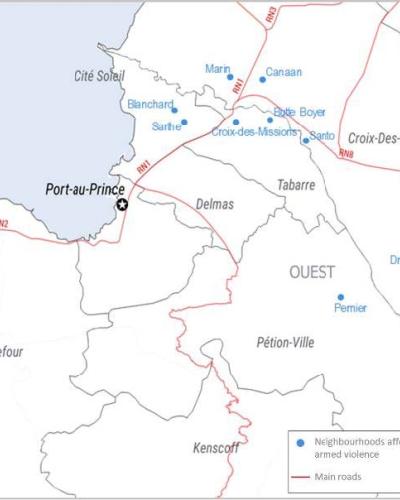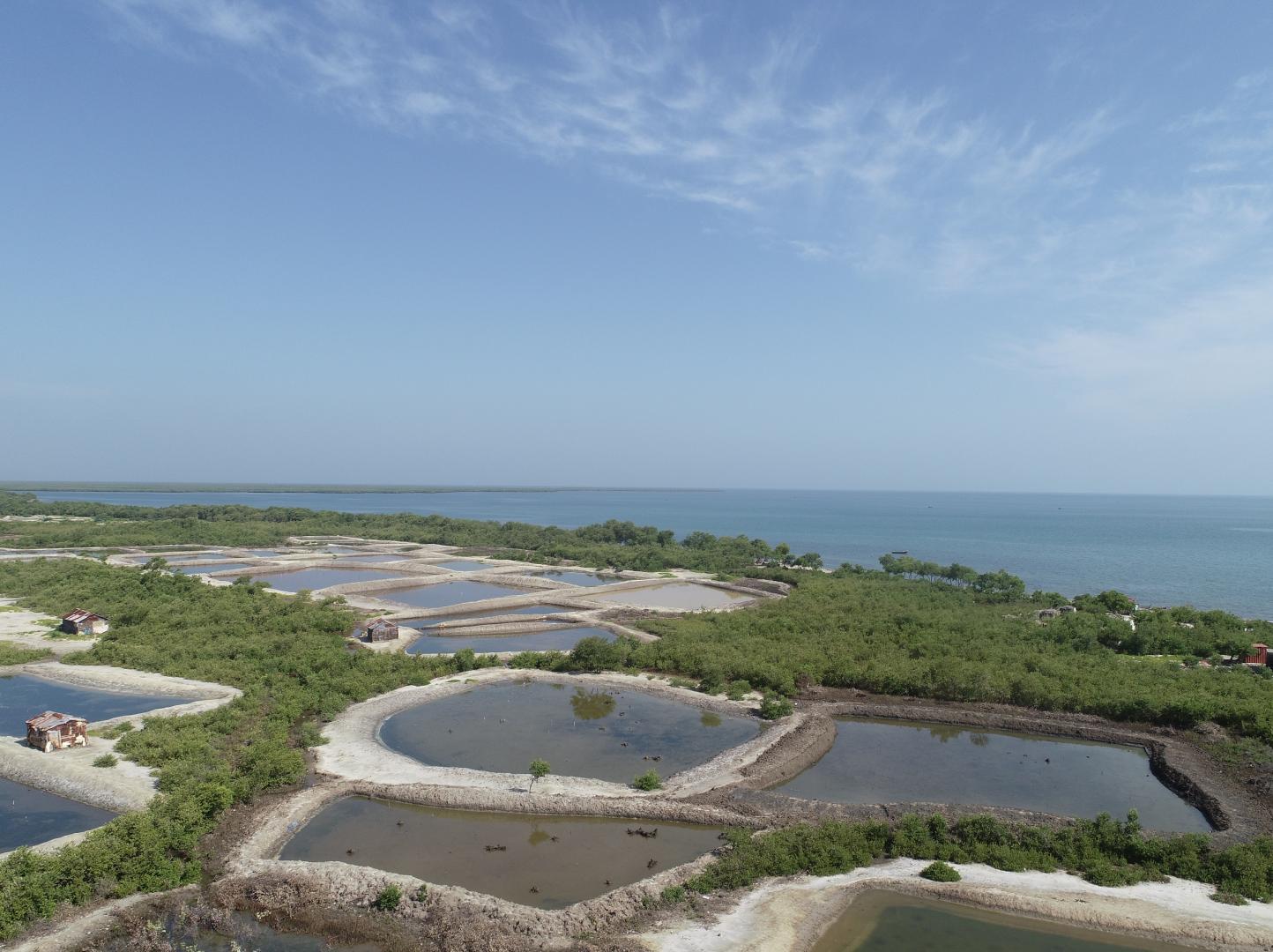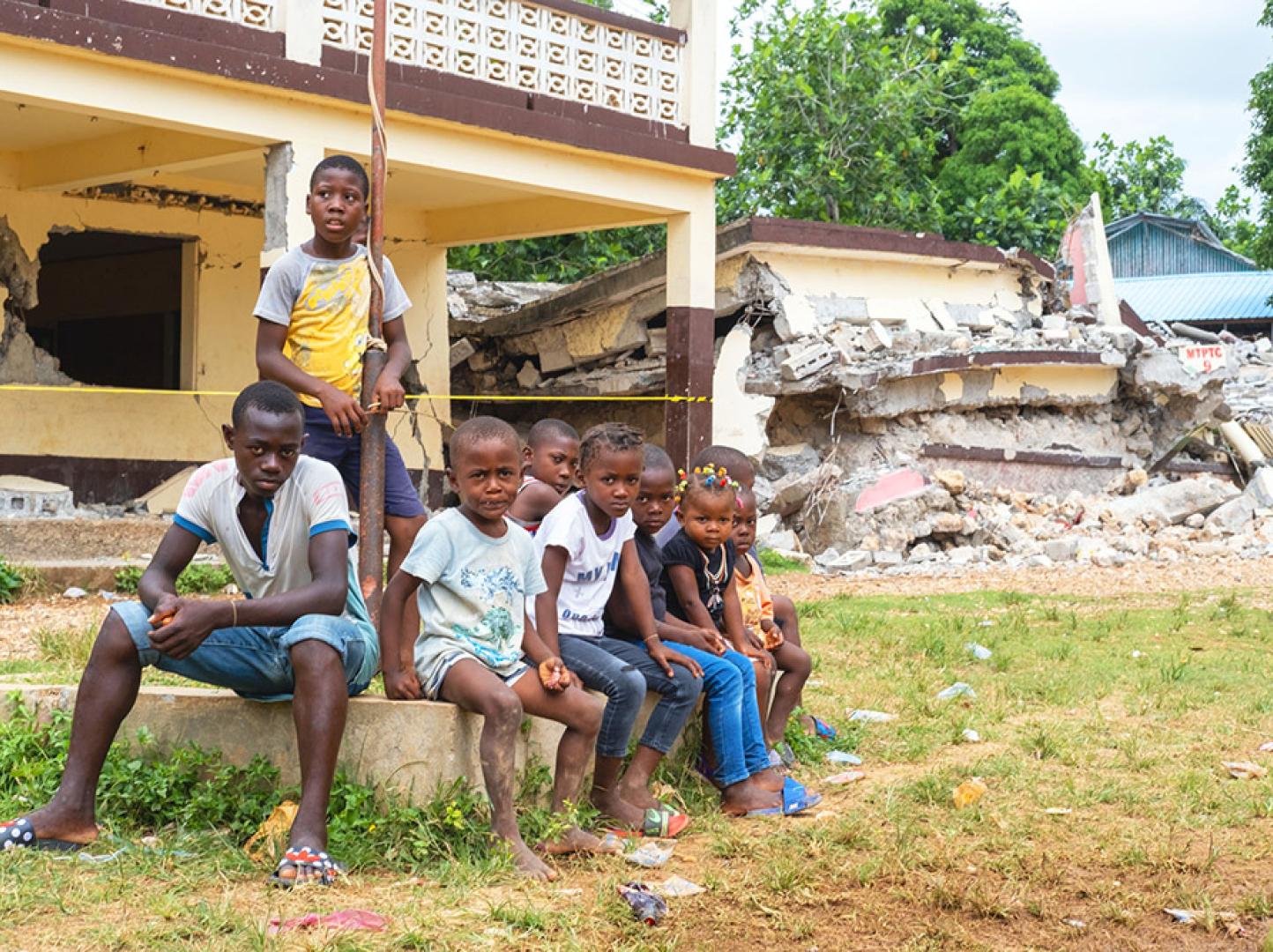Haiti : Violence in the Port-au-Prince metropolitan area, Situation Report #3, as of 26 May 2022

This report was prepared by OCHA Haiti with contributions from UN agencies, funds and programmes, non-governmental organizations, and humanitarian partners. It is based on the latest information available as of 26 May 2022 and covers the period from 24 April to 26 May 2022.
HIGHLIGHTS
● While the increase in clashes between armed gangs in the Port-au-Prince metropolitan area appears to have subsided, the situation remains highly volatile.
● Access to violence-affected neighbourhoods remains limited.
Humanitarian partners are nevertheless regaining some leeway to carry out assessments and implement response activities.
● Of the 14 makeshift sites for displaced people identified at the height of the crisis, only three remain open: Kay Castor (Tabarre), the Eben-Ezer Adventist Church (Tabarre), and the Terre Noire Classical Centre (Cité Soleil). Partners have observed some backflow.
● According to the latest nutritional survey in Cité Soleil, one in five children under age 5 suffers from acute malnutrition.
SITUATION OVERVIEW
Since 24 April 2022, the Port-au-Prince metropolitan area (PAPMA) has been experiencing violent clashes between armed gangs. While the first confrontations were between the '400 Mawozo' and 'Chen Mechan' gangs, as part of territorial clashes in the communes of Croix-des-Bouquets, Cité Soleil, and Tabarre, the armed violence, initially localised to the neighbourhoods of Butte Boyer, Croix-des-Mission and Marin, escalated and spread to the neighbourhoods of Santo, Drouillard, Sarthes, Blanchard and, more recently, Pernier in the commune of Pétion-Ville. According to Displacement Tracking Matrix (DTM) data1 , between 24 April and 20 May 20222 , 61 neighbourhoods were affected by generalised violence (including 15 neighbourhoods in Croix-des-Bouquets, 12 in Cité Soleil, and 11 in Pétion-Ville) and 41 by targeted violence (including 12 neighbourhoods in Pétion-Ville, 11 in Croix-des-Bouquets and 7 in Tabarre). Although the violence appears to have subsided in recent days, the situation remains highly volatile and unpredictable.
The affected populations, forced to flee, have had their livelihoods and access to basic services drastically reduced. The latest DTM report 3 , covering the period from 14 to 20 May 2022, mentions 11 medical centres and 9 marketplaces closed in the neighbourhoods evaluated. In Tabarre, for example, according to data collected by Save the Children on behalf of the Education in Emergency (EiE) Working Group of the PAPMA and Western Departmental Directorate for Education (WDDE), 442 schools were closed, including several that were burned down and burglarised. While schools in Tabarre have recently reopened, the situation is most worrying in the commune of Croix-des-Bouquets, where 98 per cent of schools were affected by the violence.
Provisional assessments of this outburst of violence indicate that at least 188 people have been killed, including 92 nongang members and 96 suspected gang members. Some 113 people were injured, 12 are missing and 49 were kidnapped for ransom. However, given the lack of access to areas of concern, which remain constrained, this figure could potentially be higher. Testimonies collected and cited by UN High Commissioner for Human Rights Michelle Bachelet describe extreme gang violence, including beheadings, mutilations and burning of bodies, as well as gang rapes, including of young children, used to terrorise and punish people living in areas controlled by rival gangs.
This situation has forced tens of thousands to flee their homes and seek shelter, mostly with host families or in makeshift displacement sites. While the insecurity and instability of the situation make it impossible to establish a comprehensive total of people displaced by the clashes, the figure is at least 16,828 internally displaced people (IDPs). The DTM indicates an estimated 34,598 individual movements between 24 April and 20 May 20225 . Most of these flows originate from the communes of Croix-des-Bouquets and Cité Soleil. Those displaced include groups that have been identified as vulnerable, such as people with disabilities, pregnant and breastfeeding women, children heads of households, separated or unaccompanied children and orphans, injured people or people with urgent medical problems, people with chronic illnesses and people living with HIV.
The relative de-escalation in violence correlates to a reduction in displacement flows in recent days, with partners observing people returning to their homes. Of the 14 makeshift sites identified at the height of the crisis, the majority have closed three weeks after the start of the violence. Only three sites remain open: Kay Castor (Tabarre), which hosts 300 people, the Classical Centre of Terre Noire (Cité Soleil), where there are 94 people, including eight pregnant women and six people with reduced mobility, and lastly the Adventist Church of Eben-Ezer (Tabarre), which houses 88 people.
Despite these returns, some have come home to burnt-down homes and the loss of most of their belongings and, in some cases, livelihoods (shops, tools). As mentioned by the Haitian Advocacy and Environmental Sustainability Integrated Network (RIHPED) and Tearfund in their assessment following their visit to the Eben-Ezer Adventist Church site, about half of the 100 homes abandoned were burnt down, mainly in the Haute Cour area in Butte Boyer.
The situation remains uncertain; renewed violence could lead to further displacement. Clashes have continued over the last two days at Canaan on the National Road (RN) 1, while armed assailants have intercepted and hijacked three humanitarian trucks loaded with food supplies on that same road in the last ten days. Additionally, some partners report that their trucks carrying humanitarian assistance have had to pay a fee to access the port Varreux. While gang activity in the Martissant commune has paralysed traffic on the RN 2 for almost a year, this port has become a crucial alternative for transporting goods to the south, including as part of the humanitarian response to the 14 August 2021 7.2-magnitude earthquake. Merchants in Grand Sud, unable to transport their goods safely to and from Port-au-Prince, announced an indefinite strike against insecurity starting 1 June 2022.
- UN Office for the Coordination of Humanitarian Affairs
- To learn more about OCHA's activities, please visit https://www.unocha.org/.









